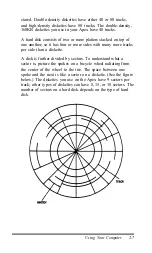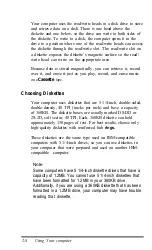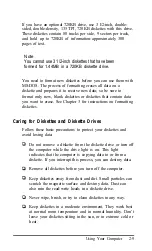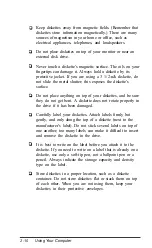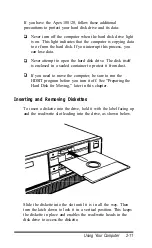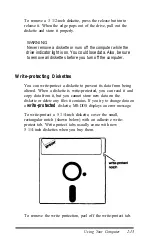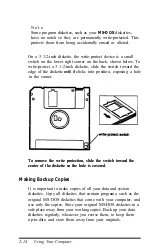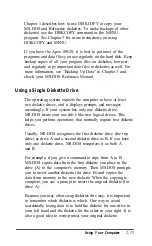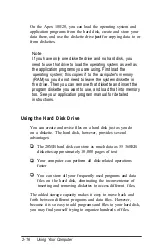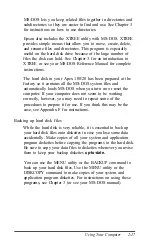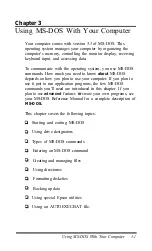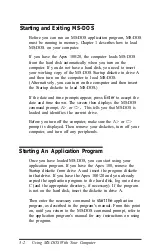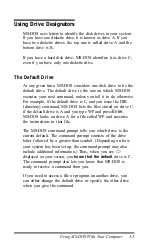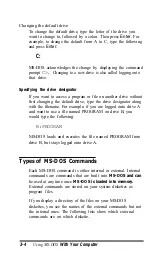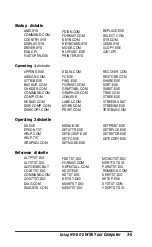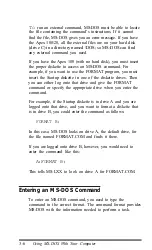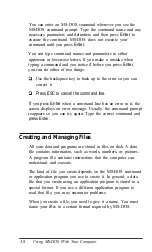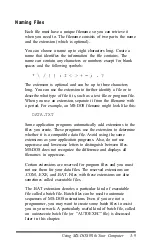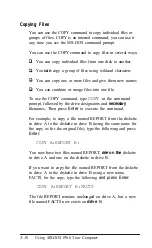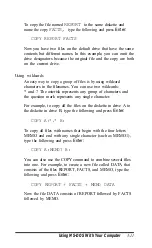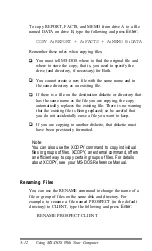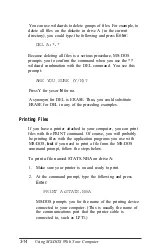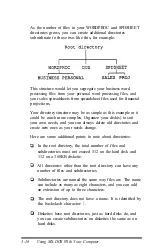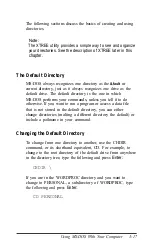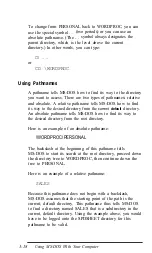
Using Drive Designators
MS-DOS uses letters to identify the disk drives in your system.
If you have one diskette drive, it is known as drive A. If you
have two diskette drives, the top one is called drive A and the
bottom drive is B.
If you have a hard disk drive, MS-DOS identifies it as drive C,
even if you have only one diskette drive.
The Default Drive
At any given time, MS-DOS considers one disk drive to be the
default drive. The default drive is the one on which MS-DOS
executes your next command, unless you tell it to do otherwise.
For example, if the default drive is C, and you issue the DIR
(directory) command, MS-DOS lists the files stored on drive C.
if the default drive is A and you type WP and press
Enter,
MS-DOS looks on drive A for a file called WP and executes
the instructions in that file.
The MS-DOS command prompt tells you which drive is the
current default. The command prompt consists of the drive
letter followed by a greater-than symbol. (Depending on how
your system has been set up, the command prompt may also
include additional information.) Thus, when you see
C>
displayed on your screen, you
know that the default
drive is C.
The command prompt also lets you know that MS-DOS is
ready to receive a command from you.
If you need to access a file or program on another drive, you
can either change the default drive or specify the other drive
when you give the command.
Using MS-DOS With Your Computer
3-3

